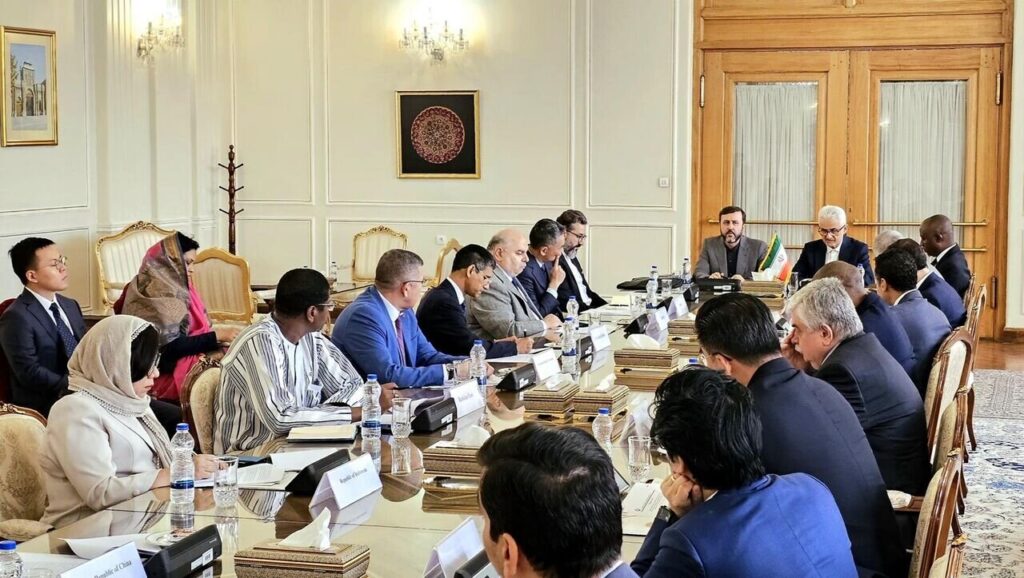TEHRAN – Iran’s Foreign Minister for Law and International Affairs on Tuesday warned that countries sitting on the IAEA committee could derail cooperation with UN agencies due to a peaceful nuclear program against the “politically motivated” Islamic Republic.
“Political motivational actions by some governments on two unproven issues related over 20 years ago could pose serious issues to the full continuity of the path of cooperation on Iran and Iran’s current activities despite Iran’s principled policies.”
Gharibabadi said, “So far, Iran has not made any changes to agency access under the safeguards following the suspension of other parties’ commitments under Iran’s nuclear deal, known as the Joint Comprehensive Plan of Action (JCPOA), but this situation cannot continue.”
The Deputy Minister added that he held separate meetings with ambassadors and the governor general’s office of the 17 countries, as well as ambassadors of Russia and China, and subsequently with ambassadors of Germany, Britain and France, to answer questions raised by them.
“At these meetings, I emphasized that Iran is a dedicated member of the Non-Proliferation Treaty (NPT), has implemented a comprehensive safeguard agreement and has extensive cooperation with the institution to fulfill its obligations under this Agreement,” he said.
Senior diplomats expressed hope that IAEA committee members would adopt a constructive approach and oppose political actions that could disrupt the maintenance and expansion of cooperation between Iran and the United Nations nuclear watchdog.
On Sunday, the IAEA raised concerns about the country’s stockpile of uranium stockpile, claiming in a confidential report to member states that Iran could not report nuclear activity in three undeclared locations.
Gharibabadi rejected the report, stating it was based on a “season of manufactured data provided by the Zionist regime” dating back more than 20 years ago.
All charges regarding Iran’s past nuclear activities have ended under UN Security Council resolution 2231. It officially approved the 2015 Iranian nuclear deal, known as the Joint Comprehensive Plan of Action (JCPOA).
The Deputy Minister also said the report by the UN nuclear watchdog agency is once again raising an old “unfounded issue” aimed at “new political exploitation of Iran.”
He further emphasized that the IAEA has become a tool of pressure on the Islamic Republic under political pressure from certain states.

